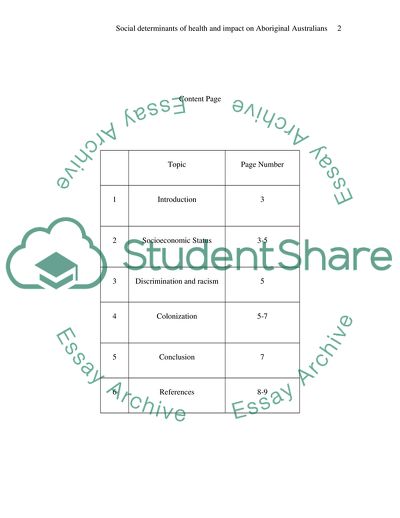Cite this document
(Social Determinants of Health and Impact on Aboriginal Australians Essay, n.d.)
Social Determinants of Health and Impact on Aboriginal Australians Essay. https://studentshare.org/health-sciences-medicine/1737489-choose-three-relevant-social-determinants-of-health-and-discuss-how-they-may-impact-on-the-health-of-aboriginal-australiansalcohol-misuse
Social Determinants of Health and Impact on Aboriginal Australians Essay. https://studentshare.org/health-sciences-medicine/1737489-choose-three-relevant-social-determinants-of-health-and-discuss-how-they-may-impact-on-the-health-of-aboriginal-australiansalcohol-misuse
(Social Determinants of Health and Impact on Aboriginal Australians Essay)
Social Determinants of Health and Impact on Aboriginal Australians Essay. https://studentshare.org/health-sciences-medicine/1737489-choose-three-relevant-social-determinants-of-health-and-discuss-how-they-may-impact-on-the-health-of-aboriginal-australiansalcohol-misuse.
Social Determinants of Health and Impact on Aboriginal Australians Essay. https://studentshare.org/health-sciences-medicine/1737489-choose-three-relevant-social-determinants-of-health-and-discuss-how-they-may-impact-on-the-health-of-aboriginal-australiansalcohol-misuse.
“Social Determinants of Health and Impact on Aboriginal Australians Essay”. https://studentshare.org/health-sciences-medicine/1737489-choose-three-relevant-social-determinants-of-health-and-discuss-how-they-may-impact-on-the-health-of-aboriginal-australiansalcohol-misuse.


